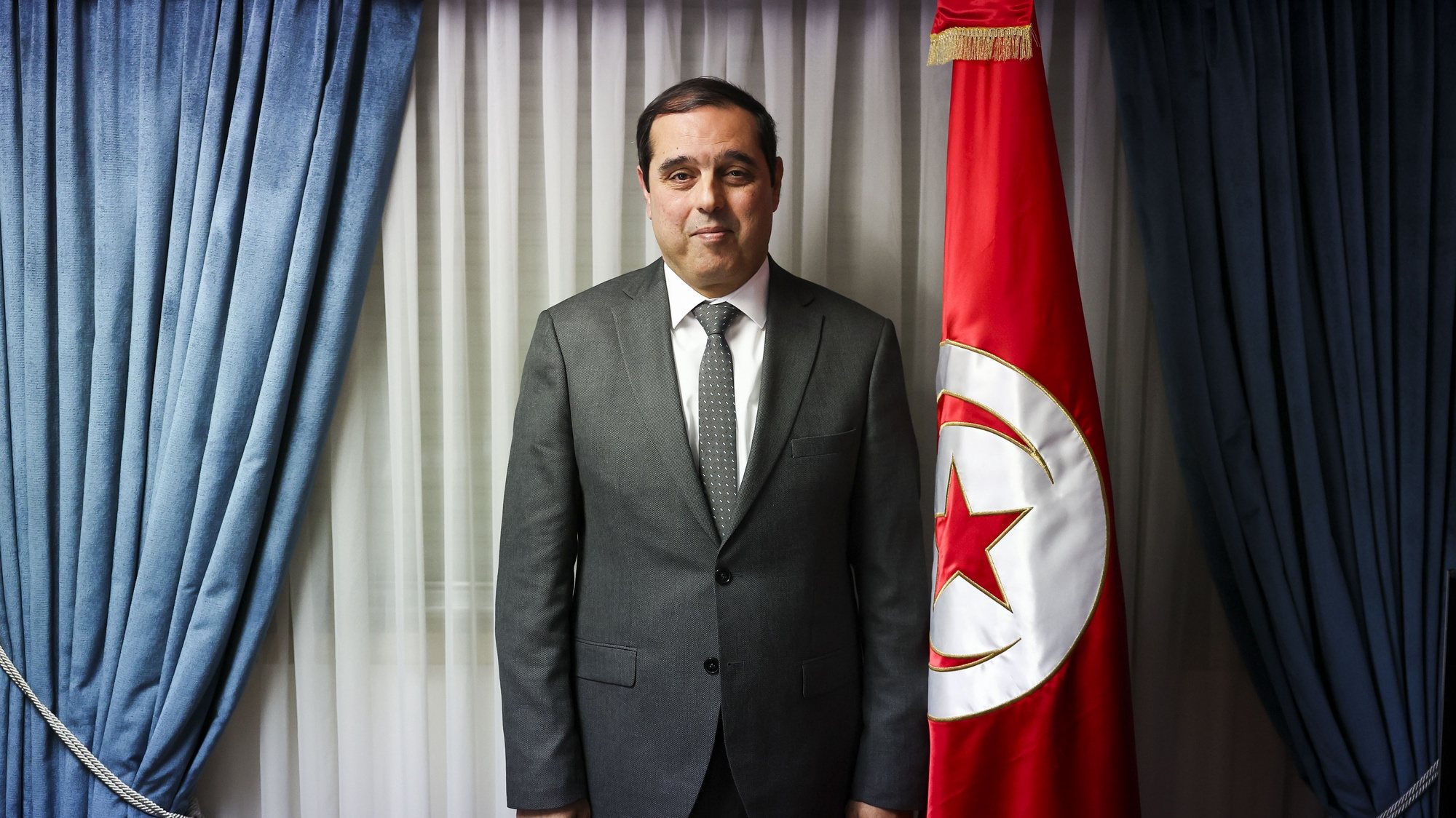The Tunisian ambassador in Lisbon mocked the weak participation (11 percent) of the Tunisian electorate in the two rounds of the legislative elections, boycotted by the opposition.
The Tunisian ambassador in Lisbon played down this Saturday the weak participation (11 percent) of the Tunisian electorate in the two rounds of the legislative elections, boycotted by the opposition, stressing that it will not impede the democratic process in the country.
In an interview with the Lusa agency, in Lisbon, Mounir Ben Rjiba defended that democracy “is the freedom to participate or not participate” and that if there were people who did not want to get involved in the process “this cannot stop the democratic process”. process” in progress, headed by the President, Kais Saied.
The two rounds of early legislative elections (December 17, 2022 and January 29, 2022) had a participation of between 11% and 11.4%
They were the last stages of the calendar presented by Saied in December 2021, six months after he dismissed the Government and Parliament to put an end to the political, economic and social instability that is experienced after the 2011 revolution in the “cradle” country. of the Arabs. Spring and that put an end to the dictatorship of then President Zine el-Abidine Ben Ali.
“Tunisia lives in a climate of freedom and transparency. What appears in the press, for the most part, does not reflect what is happening in the country. There is a climate of freedom, in which people can speak freely, without obstacles”, insisted the Tunisian diplomat, in Lisbon since 2018.
For Rjiba, the future of the country, “which now stands out for its political stability”, involves the inauguration of the future Parliament (with 161 seats), “no later than March 4” and the entry into office of all remaining parliaments .institutions.
Asked by Lusa about the reasons for such high abstention in the legislatures, Rjiba contextualized the moment that Tunisia is experiencing in recent years and guaranteed that the electorate, “disbelieving in Parliament and the parties represented in it”, will vote “massively” in the 2024 presidential election.
“There are many elements to consider to understand this participation rate. The first is that Tunisians have lost confidence in Parliament. The surveys we conducted showed that Tunisians will vote en masse, but in the presidential elections,” he said, noting that this was what the electorate chose in the constitutional referendum on July 25, 2022, which created a presidential system to the detriment of a regime parliamentary. .
Rjiba highlighted that, in September 2021, Saied created a presidential initiative led, for the first time in the Arab world, by a woman, Najla Bouden Romdhane, thus giving “national and international visibility to the future of the democratic process in Tunisia.”
For the Tunisian diplomat, the new electoral law approved together with the constitutional referendum, and which is at the base, to a large extent, of the electoral boycott of almost all the opposition, also came to help combat “the difficulties and political impasses- partisans”. ” that continued in the country after the 2011 revolution.
“For example, no person can stand as a candidate for deputy if they have legal or judicial problems. It didn’t exist before. There were situations of deputies whose situation was not clear in the field of justice. As for the political parties, the candidacies were open to all. But there were conditions, and one of them was that the candidates did not present themselves in the name of a party, but in their personal capacity, because the system became single-member, ”he explained.
Rjiba maintained that, even under these conditions, there are at least two political parties, which he has not named – the official final results of the legislative elections have not yet been published – that have elected deputies.
Asked about whether the legitimacy of a regime imposed by Saied, which does not have the opposition represented in the political process, could cause problems in the future —international analysts recently alerted Lusa about the dangers of a coup—, Rjiba also subtracted importance, stressing that Tunisians “were never prevented from participating” in the electoral process.
“Democracy is also the freedom of a person to express himself, the freedom to participate or not to participate. If there were people who did not want to participate, this cannot stop the democratic process. We learn from the lessons of the past, we take note of what is happening, we will take it into account, but the democratic process continues, and democracy and freedom must continue to be protected, ”he argued.
For the Tunisian diplomat, political parties will always have a role to play.
“They exist, they are active in the Tunisian political scene, they are present, either individually or in coalitions. Political life in Tunisia is very dynamic and in a climate of freedom. Take, for example, the Tunisian press, radio or television. The opposition speaks smoothly and criticizes. And that is also freedom. We respect and accept criticism and freedom of the press. But the country must be governed and decisions must be made, ”he concluded.
Source: Observadora
